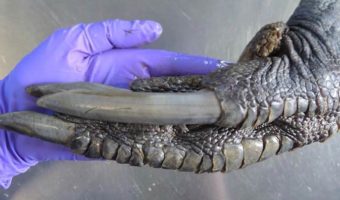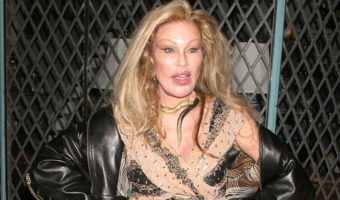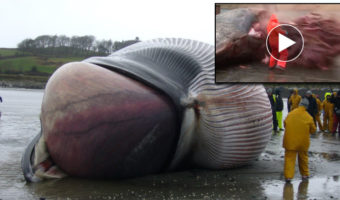50 Cool Animal Facts That Will Turn You Into an Animal Trivia Expert
Table of Contents
20/50
Lesser Capybara: Subspecies of the World’s Largest Rodents
This is the lesser capybara, a subspecies of the greater capybara, which are the largest living rodents on the planet. An adult lesser capybara can weigh around 62 lb, while the adult greater capybara weighs 77 lb or more. Here’s a female lesser capybara nursing her young.
19/50
Ever noticed how beavers always look like they have just eaten an orange popsicle?
It is because they have naturally orange teeth! The outer enamel on their four chisel-shaped incisors is thick and colored orange due to the presence of iron compounds. The iron-rich protective coating helps them to cut through hard objects like wood.
18/50
Did you know that some turtles breathe through their butts?
When hibernating underwater during the winter months, the painted turtles slow their metabolism by 95% and lower their body temperatures, and they get the limited oxygen they need through their butts through a process called cloacal respiration.
17/50
African Buffalos and Their Democratic Direction Decisions
Scientists have observed that African buffalos display “voting” behavior when deciding in which direction the herd will move. Only the female buffalos vote by getting up from a resting position, shuffling around, and gazing in one direction before lying down again.
16/50
Komondor The Guardian Sheepdog with a Camouflaging Coat
Komondor, also known as the Hungarian sheepdog, is specifically bred to guard livestock because the dog’s long, corded coat acts like an armor that provides protection against sharp-toothed predators such as wolves. The unique coat also makes them look like sheep and helps them to blend in.
15/50
“Black panther” denotes melanistic jaguars and leopards, opposite of albinism.
A “black panther” is not its own species. The umbrella term describes jaguars and leopards that have melanism or excess black pigments that give them their unique appearance. It is the opposite of albinism, which can turn animals white.
14/50
The sword-billed hummingbird boasts a beak longer than its body
The sword-billed hummingbird is the only bird in the world to have a beak that’s longer than the rest of its body. The bill can grow up to 4.7 inches long, and the bird uses it to drink nectar from flowers with long corollas.
13/50
Greenland sharks hold the record for the longest lifespan among vertebrates
Greenland sharks live the longest of all vertebrate species. They have an average lifespan of around 250 to 500 years, and they don’t reach sexual maturity until they are around 150 years old. They are one of the largest living species of shark, and adults can be up to 24 feet long and weigh up to 3,100 lb. They are found mostly in the Arctic Ocean and North Atlantic Ocean.
12/50
The muskox’s qiviut-lined coat provides superior warmth for Arctic survival
The muskox has a two-layered coat. The soft underwool beneath the longer outer wool is called qiviut, and it’s stronger and warmer than sheep’s wool. This unique coat helps the muskox to live in the frozen Arctic and roam the tundra.
11/50
In Thailand, monkeys harvest 1,600 coconuts daily, surpassing humans who collect only 80
Did you know that coconut farmers in Thailand train monkeys to harvest coconuts from the tall trees? Turns out, a single male monkey can collect around 1,600 coconuts per day, while a human can collect only around 80 per day.
























